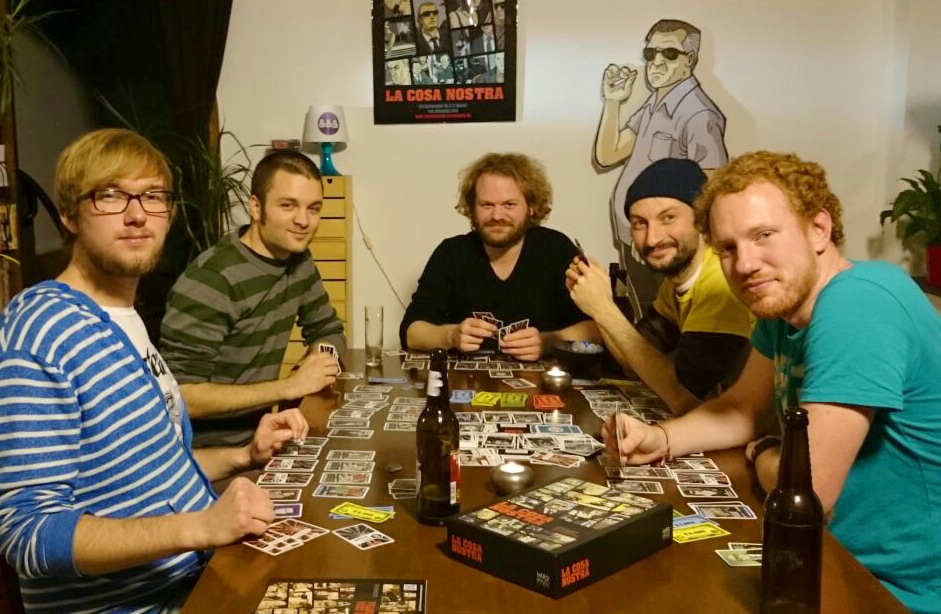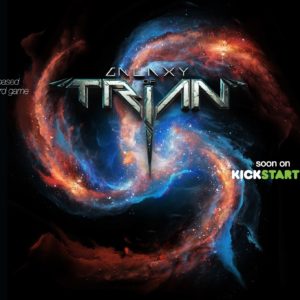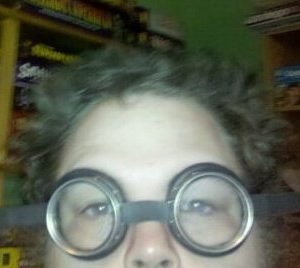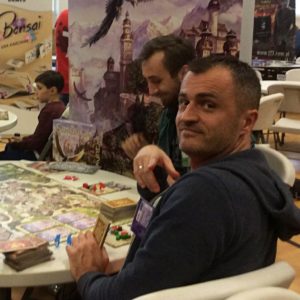Johannes Sich – rozmowa z autorem La Cosa Nostry / interview
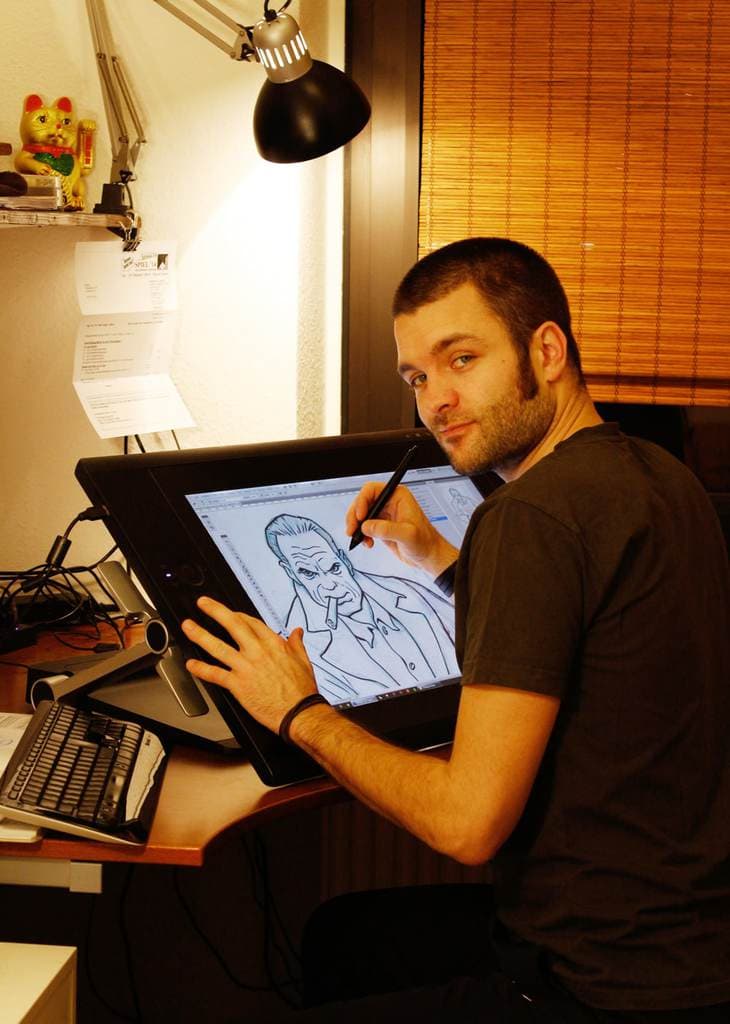
Johannes Sich to autor La Cosa Nostry, która na Wspieram.to osiągnęła już 100% potrzebnej do ufundowania kwoty walczy teraz o dodatkowe cele. Stworzona przez Johannesa gra jest czymś zupełnie innym niż to, do czego przyzwyczaili nas zachodni sąsiedzi – negatywna interakcja, negocjacje, zdrady i morderstwa nie mają nic wspólnego z grą euro. Podpytaliśmy autora o proces powstawania i wydawania tej karcianki (niemiecki crowdfunding) oraz jego inspiracje. Nie zabrakło oczywiście pytania o ulubioną planszówkę! 😉
Johannes Sich is the designer of La Cosa Nosta, which will be availible on Kickstarter this June. Polish crowdfunding campaign just hit the 100% mark. We’ve asked Johannes a few questuoins about his game.
Scroll down for English version 🙂
Rozmowa w języku polskim:
Planszówki we dwoje (Wiktor): Witaj Johannes! Zacznijmy od kilku pytań o Twoją grę – La Cosa Nostrę. Graliśmy w nią, pokochaliśmy ją i chciałbym porozmawiać o stojących za nią motywacjach oraz procesie jej projektowania. Mam też kilka ogólnych pytań, ale do tych dojdziemy później.
Johannes Sich: Główną motywacją było stworzenie gry, która pozwala na poczucie się szefem mafii w gangsterskim stylu, który znamy z „Rodziny Soprano” czy „Ojca Chrzestnego”. Nie znam żadnej planszówki, która oferuje taką znaną z innych mediów atmosferę: mroczną i nieprzyjemną. Moim celem podczas tworzenia La Cosa Nostry było ujęcie tego wrażenia siły, chciwości, braku zaufania i niebezpieczeństwa.
Twoja ojczyzna jest szeroko znana z gier euro. Na anglojęzycznej Wikipedii są one nawet nazywane „grami w stylu niemieckim”. Gdy zapytasz kogokolwiek o niemieckich projektantów, to niemal na pewno wspomną Rosenberga, Knizię, czy Felda. Twoja La Cosa Nostra jest wredna, trochę losowa i wypełniona negatywną interakcją. Jak mogłeś – będąc Niemcem! – zaprojektować taką grę? Skąd ten pomysł?
Hahaha racja, to dość nietypowe. Szczerze, to gdy startowałem z pomysłem nie myślałem o tym zbyt wiele, chciałem tylko stworzyć prawdziwie mafijną tematycznie grę, było dla mnie oczywistym, że musi być ona wredna i nieustępliwa. Podczas lat jej rozwijania na własnej skórze nauczyłem się, że niemieccy gracze często z zastrzeżeniami podchodzą do negatywnej interakcji. Lecz wciąż miałem nadzieję, że jest wielu graczy takich, jak ja, którzy pokochaliby dużą dawkę negocjacji i konfrontacji, którym tego właśnie brakuje na niemieckiej scenie planszówek. Wtedy nawet skupiłem się na tym aspekcie. Okazało się to strzałem w dziesiątkę – ludzie pokochali grę właśnie dlatego, że jest taka wredna i wciąż dostajemy dużo pozytywnych opinii na ten temat.
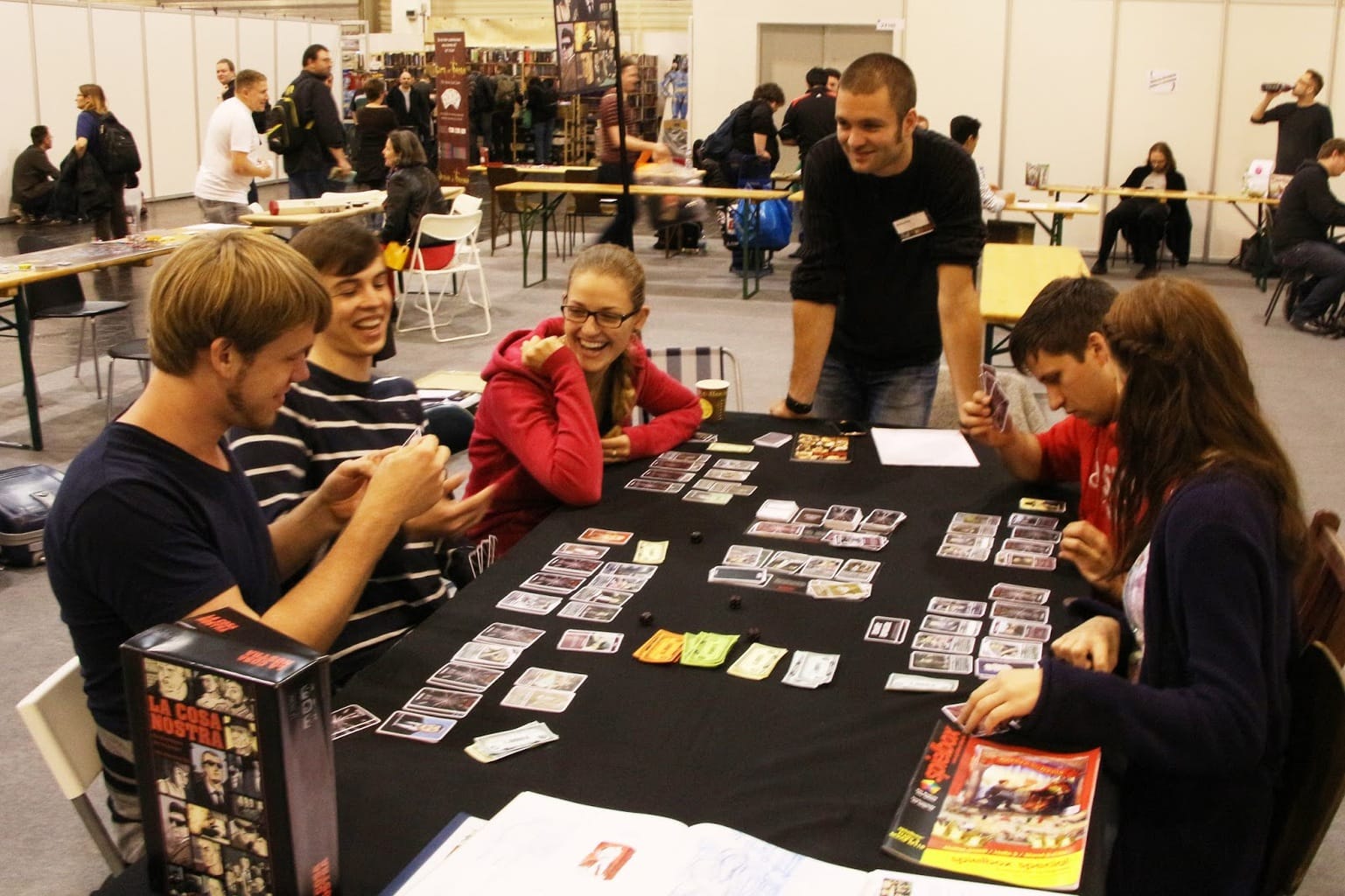
Karcianki na ogół są otwarte na dodatkową zawartość i wydaje mi się, że La Cosa Nostrę można by łatwo rozwinąć – nowe rodziny, nowi gangsterzy (może jacyś ze zdolnościami specjalnymi?), karty rynku i zadań… Planujesz jakiś dodatek? Może nawet już nad czymś pracujesz?
Projektując grę miałem wiele dalszych pomysłów i zawsze starałem się zapamiętywać je na potrzeby dodatku. Jednak wydanie gry i wszystko co jest z tym związane pochłonęło tyle czasu i energii, że musiałem trochę odpocząć zanim mogłem działać dalej. Ale teraz wracam do gry – tak, pracuję nad dodatkiem i rozwijam kilka pomysłów.
Jesteś grafikiem i stworzyłeś wszystkie ilustracje do La Cosa Nostry, ale miałeś też zespół kreatywny. Jaki był ich wpływ na grę? Dzielili się pomysłami, sugerowali rozwiązania mechaniczne, a może CAŁĄ robotę wykonałeś sam?
Blisko współpracuję z moim przyjacielem Danielem Gollem, który wykonał dużo roboty graficznej i wspierał mnie w całej pracy związanej z wydawaniem. Naturalnie w trakcie rozwijania gry, już od samego początku mocno ją testowaliśmy, wraz ze mną regularnie grywało kilku bliskich przyjaciół i mój brat, którzy dzielili się pomysłami i sugestiami. Te osoby pomagały mi również w realizacji kampanii crowdfundingowej. Wielkie dzięki!
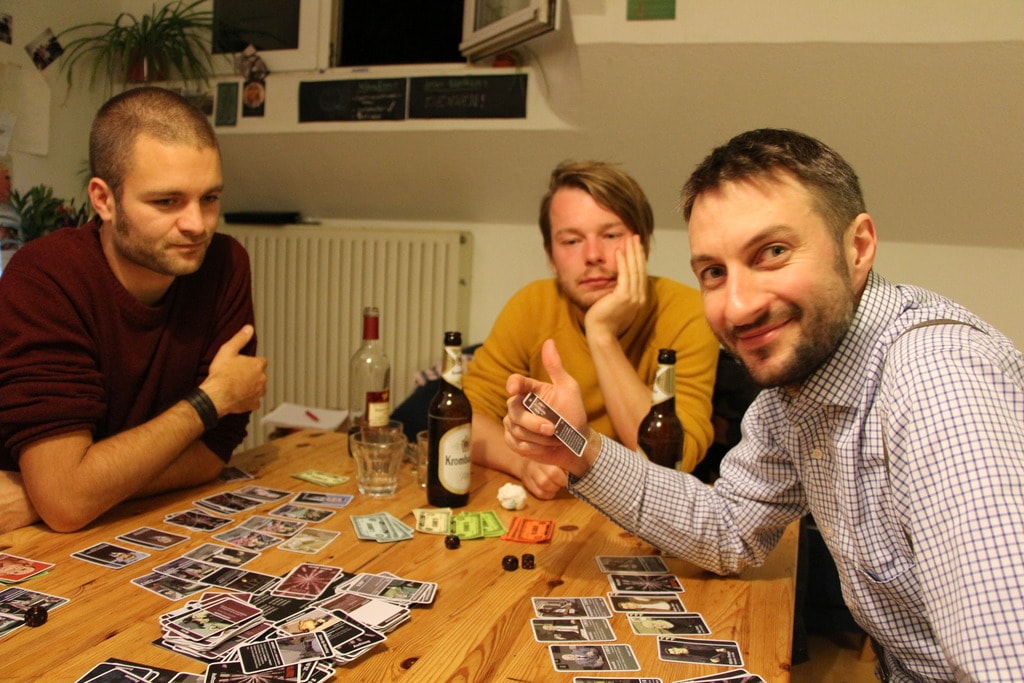
La Cosa Nostra została ufundowana przez Startnext, niemiecką platformę crowdfundingową. Dlaczego zdecydowałeś się na to rozwiązanie zamiast szukać wydawcy?
Rozważaliśmy poszukiwania kogoś, kto wyda grę. Od początku jednak zdawaliśmy sobie sprawę, że sedno gry będzie niebywale mroczne, wredne i pełne interakcji. Nie byłoby to więc zbytnio interesujące dla dużych wydawców w Niemczech, jednak doskonale nadawało się na projekt niezależnej gry! Było to okres, w którym Kickstarter się rozrastał, a my zaczęliśmy myśleć o samodzielnym wydaniu produktu. Ekscytował nas też pomysł przeprowadzenia własnej kampanii crowdfundingowej!
Twój projekt zebrał ciut ponad 20 tysięcy euro i z tego co mi wiadomo niedługo La Cosa Nostra trafi także na Kickstartera. Dlaczego od razu nie zdecydowałeś się na wybór tej dużej i znanej platformy?
To była nasza pierwsza gra, a już sam proces wydawniczy jest wystarczająco skomplikowany, dlatego chcieliśmy skupić się na wersji niemieckiej. Fundowanie jej przez Kickstartera wymagałoby angielskiej gry oraz międzynarodowego marketingu. Podczas kampanii na Startnext doceniłem tę decyzję, bo już ona zapewniała nam masę pracy. Jednak zawsze myśleliśmy o tym, aby później pójść z projektem na Kickstartera. Teraz tak się stanie: Quined Games z Holandii zamierza rozpocząć kampanię, by wydać angielską wersję.
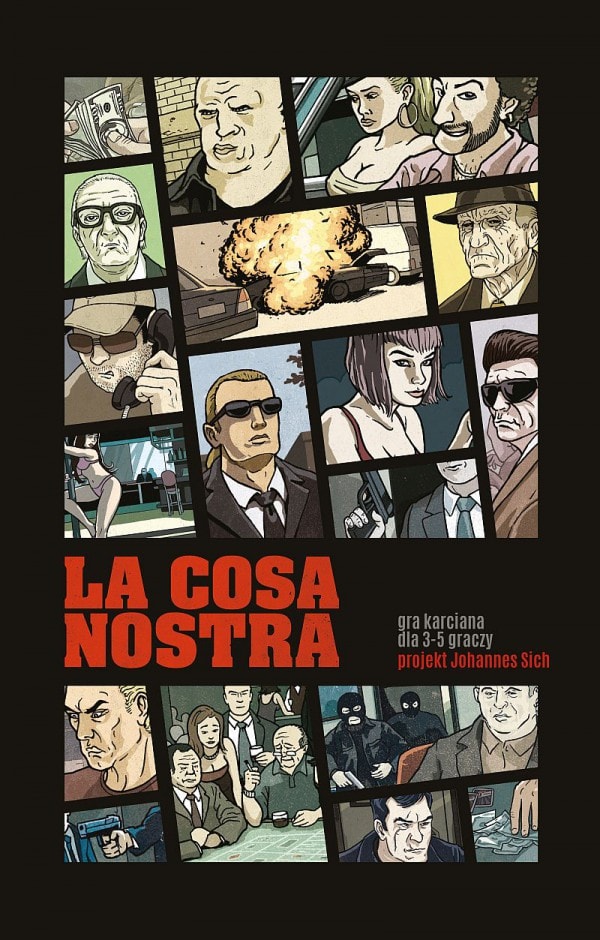 Każdy kto spogląda na pudełko La Cosa Nostry od razu dostrzega odniesienie do Grand Theft Auto [znana seria gier komputerowych]. Czy hit Rockstara [studio odpowiedzialne za GTA] tak bardzo na Ciebie wpłynął? Widziałem nawet odznakę fana GTA na Twoim profilu na BGG ;).
Każdy kto spogląda na pudełko La Cosa Nostry od razu dostrzega odniesienie do Grand Theft Auto [znana seria gier komputerowych]. Czy hit Rockstara [studio odpowiedzialne za GTA] tak bardzo na Ciebie wpłynął? Widziałem nawet odznakę fana GTA na Twoim profilu na BGG ;).
Tak, kocham serię GTA, szczególnie za styl ilustracji. Zarówno on, jak i projekt gry wyróżniają się w historii gier komputerowych. W La Cosa Nostrze chcieliśmy stworzyć mroczy i nowoczesny styl, który będzie odróżniał się od typowego wyglądu planszówek. Zdecydowaliśmy się więc na taki, który odnosi się do komiksów i gier komputerowych. Inną ważną inspiracją był na przykład wygląd komiksu „100 naboi” Eduardo Risso.
Sugerowany wiek w Twojej grze to 16+. Zawiera ona przemoc oraz tematy takie jak sprzedaż narkotyków i prostytucja. Można w niej nawet kupić/skorumpować polityków i gliniarzy. Nie bałeś się, że to zbyt poważna tematyka dla gry planszowej? Rozważałeś jej zmianę?
Nie, nigdy nie rozważałem zmiany, ponieważ to coś, co chcieliśmy osiągnąć: gra planszowa dla dorosłych, która poważnie podchodzi do tematu. Ale oczywiście trzeba być bardzo ostrożnym zajmując się takimi sprawami. Istnieje cienka linia między gloryfikowaniem gatunku, a trywializowaniem wstrętnego w rzeczywistości postępowania – w grze planszowej nawet cieńsza niż w filmie. Staraliśmy się więc zawsze trzymać odpowiedniej dawki sarkazmu i satyry.
La Cosa Nostra zapewnia podobne odczucia z gry do mojej ulubionej planszówki – Spartacusa: A game of blood and treachery. Znasz ją, grałeś w nią?
Tak, grałem i pokochałem. Wyobraź sobie, że lubię te zdradliwe gry…
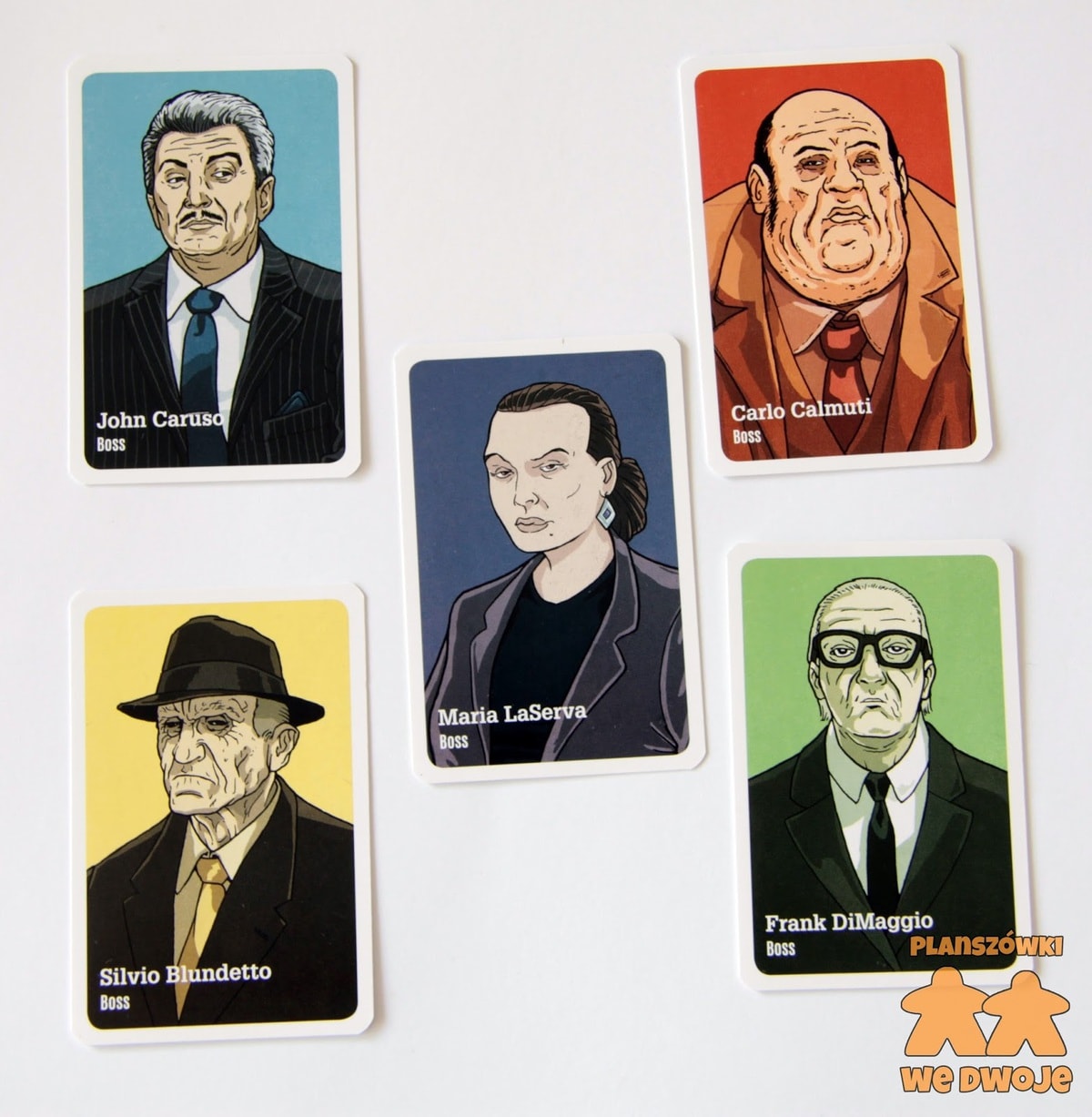
Która rodzina z La Cosa Nostry jest Twoją ulubioną? Sam jestem fanem Silvio Blundetto – wygląda poważnie i oldskulowo.
Nie zadzierałbym z nim ;).
Również lubię Silvia, który jest oldskulowym człowiekem Cosa Nostry i chyba najbardziej nikczemnie wyglądającą postacią w grze. Mówiąc o charakterze gangsterów, to wydaje mi się, że najbardziej lubię czerwoną rodzinę Carlo Calmutiego.
Pozwól że zadam Ci dwa łatwe (mam nadzieję) pytania.
Gry euro czy ameritrashe, które wolisz i dlaczego?
Hmmm… Najważniejszą cechą gier planszowych jest dla mnie immersyjność, a tę odczuwam przy grach z silnie zarysowanym tematem, interakcją między graczami i nastawieniem na konfrontację, więc gdybym musiał wybierać skłaniałbym się w stronę ameritrashy. Jednak jest również wiele gier euro, które sprawiają mi frajdę.
I drugie – jaka jest Twoja ulubiona gra?
Uh, to trudne. Jest tyle dobrych gier… Mówiąc o dużym nasyceniu zdrad i konfrontacji lubię na przykład Grę o Tron. Z imprezowych po latach wciąż kocham Petits Meurtres & Faits Divers, to po prostu świetna, zabawna i wymagająca gra. Ostatnio najwięcej grywałem w Krwawą oberżę i Boss Monstera, obie są bardzo fajnymi i prostymi do nauczenia pozycjami – mają też ładne i wyróżniające się ilustracje.
Niemcy to wielki rynek planszówkowy z wieloma znanymi nazwiskami i grami, jednak co z polskimi projektantami i wydawcami? Grałeś kiedyś w polskie gry lub o nich słyszałeś?
Z tego co wiem, to Robinson Crusoe i Alcatraz zostały stworzone przez polskich projektantów. Niestety, jeszcze w nie nie grałem – jest mi wstyd – jednak są na mojej liście!
Możemy się spodziewać kolejnych gier zaprojektowanych przez Johannesa Sicha? Może masz już coś w planach?
Pracuję nad dwoma innymi konceptami. Jestem pewien, że będą świetne, jednak będą wymagały wiele pracy, by stały się tak wspaniałe, jak tego od nich oczekuję. Oczywiście będą twarde i cyniczne ;).
Dziękuję Ci za rozmowę!
The interview in English:
Planszówki we dwoje (Wiktor): Hi Johannes! Let’s start with some questions about your game – La Cosa Nostra. I’ve played it, I loved it and I would like to learn a little about your motivations and the designing process. I’ve got some general questions too, but we’ll get to them later :).
Johannes Sich: The motivation in the first place was to create a game that offers the experience of being a Mob boss in the Mafia genre like we know it from „The Sopranos“ or „The Godfather“. I didn’t know a board game that offers this atmosphere in the way we know it from other media: dark and nasty. The intention of the whole design process was to get that feeling of power, greed, mistrust and danger.
Your country is well-known for its eurogames. On Wikipedia they’re even called “German-style board games”. If you ask anyone about German designers, it’s almost certain they’ll mention Rosenberg, Knizia or Feld. Your La Cosa Nostra is mean, quite random and filled with negative interaction. How could you – a German! – design such a game? Where did you get this idea?
Hahaha right, that’s quite unusual. Honestly, when I started with the idea I didn’t think about it that much, I just wanted to create a real Mafia theme game, and for me it was clear that it has to be mean and tough. During the years of development I learned it the hard way, that gamers in Germany often have reservations about negative interaction. But still I hoped that there are many gamers out there like me, who’d love a high level of negotiation and confrontation, and who miss this in the German board game scene. So I even focussed on this aspect. It turned out to be right – people love it, not in spite of, but because it is so mean, and we still get a lot of awesome feedback about that.
Card games are usually open for additional content and I think La Cosa Nostra could be easily expanded – new families, gangsters (maybe with some special abilities?), market and assignment cards… Are you planning an expansion? Maybe even already working on one?
I had a lot of further ideas while designing this game, and I had always in mind to keep them for an expansion. But the game release and all the stuff around it took me so much time and power that I needed some time until I could continue. But now I am back in the game – yes, I am working on one, there are even several concepts in progress.
You’re a graphic designer and you’ve made all the artworks in La Cosa Nostra, but you also had a creative team. What was their influence on the game? Did they share any ideas, suggest some mechanics or you’re the one who did ALL the work?
I work closely together with my colleague and friend Daniel Goll, who did a lot of the graphics work and supported me in all the work related to the publishing. Of course in the development of the game we had a lot of playtesting right from the beginning, and I had some close friends and my brothers, who regularly played with me and shared a lot of ideas and suggestions. Those people also helped me a lot in realizing the crowdfunding campaign to release the game. Thanks a lot guys!
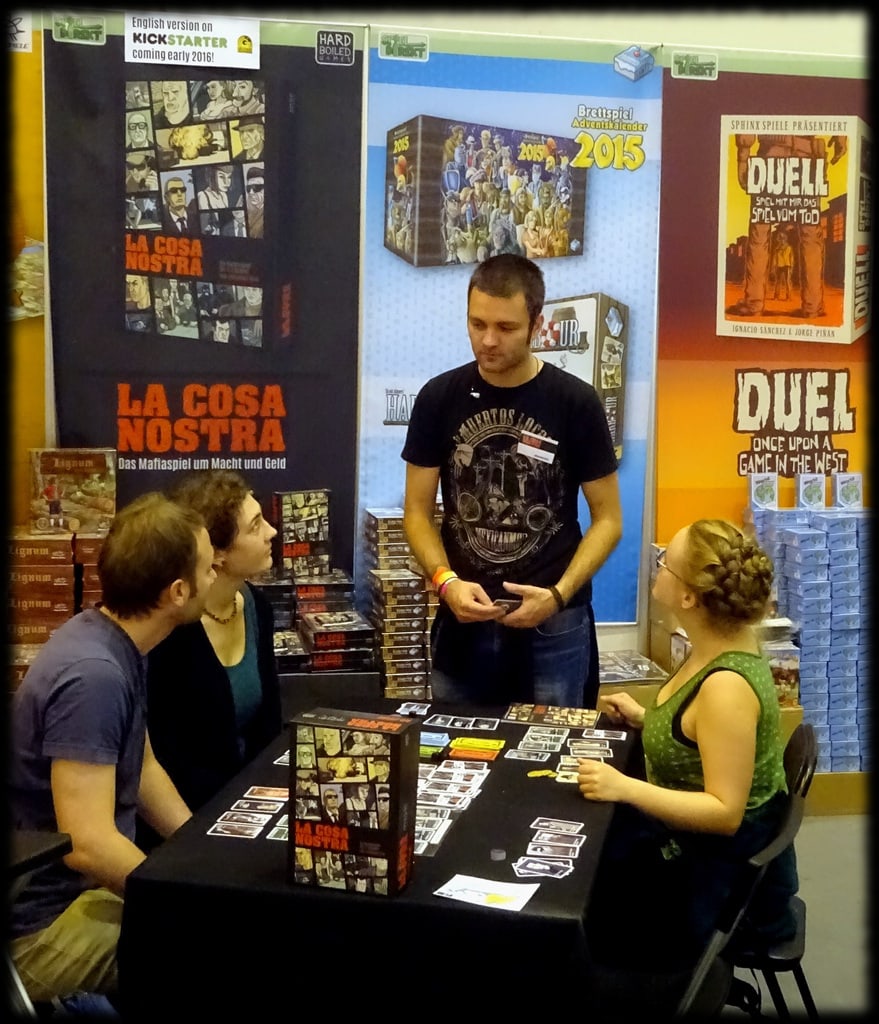 La Cosa Nostra was funded on Startnext, a German crowdfunding platform. Why did you decide to take that way, instead of looking for a publisher?
La Cosa Nostra was funded on Startnext, a German crowdfunding platform. Why did you decide to take that way, instead of looking for a publisher?
We did consider the option to look for a publisher. But we knew early that the very heart of this game is to be unusually dark, mean and interactive. So it wouldn’t be very attractive for a big publisher in Germany – but perfect for an indie game project!
It was the time when Kickstarter grew big when we started to think about self-publishing – and we were excited about the idea to do our own crowdfunding campaign!
Your project has collected a little over 20 000 euro and as far as I know you’re now going with La Cosa Nostra on Kickstarter. Why didn’t you choose this big and famous platform in the first place?
This was our first game and it’s complicated enough to publish a board game, so we wanted to focus on a German version. Going on Kickstarter would have required an English version and international marketing. While doing the Startnext campaign I was pretty glad about that decision, it was already a crazy amount of work. But we always had in mind to go on Kickstarter afterwards. Now this will happen: Quined Games from Netherlands is about to run a Kickstarter project to publish the English version.
Everyone who looks at the La Cosa Nostra box sees the Grand Theft Auto reference. Did the Rockstar hit influence you that much? I’ve even seen your GTA badge on your BGG profile ;).
Yes, I love the GTA games and especially their art style. Both game design and art are outstanding in the history of computer games. We wanted to get a dark and modern art style for our game, that pops out from the usual boardgame visuals. So we decided for a style that refers to comics and computer games. Another important influence for example was the great comic art of „100 Bullets“ from Eduardo Risso.
Your game’s suggested age is 16+. It contains violence, drug dealing and prostitution. You can even buy/corrupt politicians and cops. Weren’t you afraid, that the theme is too serious for a board game? Did you consider changing it?
No, I never considered to change this, because that’s exactly what we wanted: A board game for adults, that takes the genre serious.
But of course you have to be very careful if your are handling a theme like this. It’s a thin line between glorifying a „genre“ and trivializing the despicable real-life aspect of it – in a board game even more than in a movie. So we tried to always keep an appropriate amount of sarcasm and satirical humor.
La Cosa Nostra offers a similar game feeling to my personal favorite – Spartacus: A game of blood and treachery. Do you know this game, did you play it?
Yes, I played it and loved it. I like those treachery games, as you can imagine…
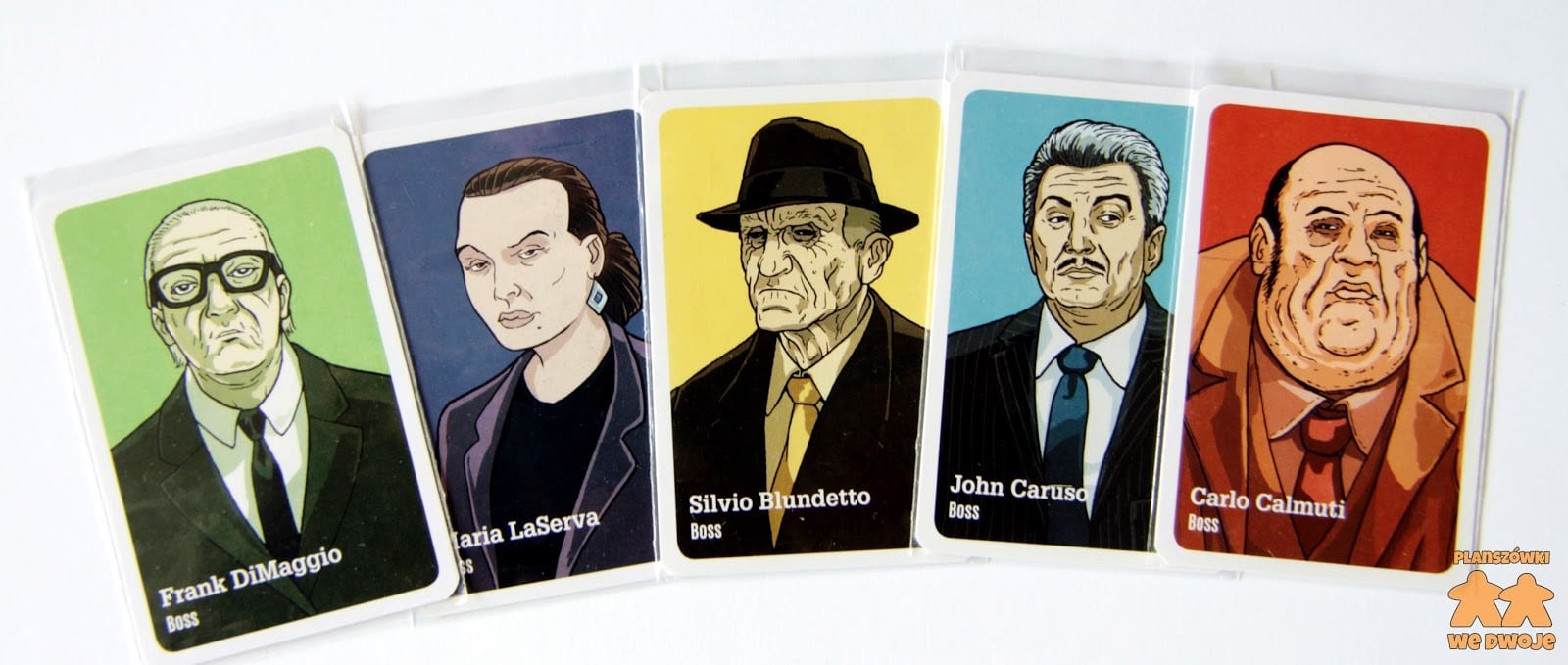
Which family in La Cosa Nostra is your favorite? I’m a fan of Silvio Blundetto – he looks really serious and old-school. I wouldn’t mess with him ;).
I like Silvio as well, as he is the old school Cosa Nostra guy and maybe the most wicked looking character in the game. Regarding the gangster characters of the families, I think my favorite is the red family of Carlo Calmuti.
Let me ask you two easy (I hope!) questions.
Eurogames or Ameritrash? What’s your pick and why?
Hmm… For me the most important thing in boardgaming is immersion, and this happens to me with a strong theme and player interaction and confrontation, so I’d tend to Ameritrash if I had to decide. But there are also many Eurogames that I enjoy a lot.
And the second one – what’s your favorite board/card game?
Uh, that’s difficult. There are so many good games…
Regarding treachery and confrontation on a high level, I like „A Game of Thrones“ for example. Regarding party games, after years I still really love „Petits Meurtres & Faits Divers“, it’s just great, funny and demanding. What I played most in the last time was „The Bloody Inn“ and „Boss Monster“, both are great games while easy to learn – and both have a great and outstanding artwork.
Germany is a big board game market with many well-known names and games, but how about Polish designers and publishers? Have you ever played any Polish games, or at least heard of them?
As far as I know, Robinson Crusoe and Alcatraz are made by Polish designers. Unfortunately, I haven’t played them yet both, shame on me, but they are on my list!
Can we expect any other games designed by Johannes Sich? Maybe there’s already something being planned?
I am working on two other concepts. I am sure they will be awesome, but it will need a lot of work to make them as awesome as I expect them to be. Certainly, they will be hard boiled 😉
Thank you for your time!
